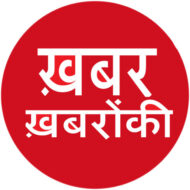
World Bank Redefines Vision to Progress Towards a ‘Livable Planet’: Ajay Banga
Ira Singh
14 Sep’23
In a groundbreaking announcement, the World Bank Group has unveiled a bold new vision aimed at advancing global sustainability and climate action. The initiative, spearheaded by World Bank President Ajay Banga, is a resolute commitment to forging a “livable planet” for future generations by reimagining the institution’s role in addressing the world’s most pressing challenges.
On the sidelines of the G20 meeting in New Delhi, Ajay Banga, the president of the World Bank, stated that the organization’s mission is being revised to include the eradication of poverty on a “liveable planet” as part of ongoing changes, according to media report.
The G20 has committed to making multilateral lending effective against poverty.
“There’s a lot of work going on with the World Bank on the reform agenda. It starts from redefining the vision of the bank, to not just be focused on poverty, although it’s important, but to also include a liveable planet,” press statement quoted Banga as saying.
He said the objective is to end poverty on a globe where people can live, and that by doing so, countries can broaden their perspectives to encompass climate change, pandemics, and fragility, all of which are linked to ending poverty.
As a former Mastercard executive chairman, Banga brought to light the necessity for cooperation among multilateral development banks on issues of digital governance and climate change, as well as the inclusion of the private sector to encourage investments in renewable energy in developing countries.
“I just announced a very big partnership with the Inter American Development Banks on the Amazon (region) on Caribbean climate and are digitising governance. We’ve also announced a private sector lab where N. Chandrasekharan (chairman) of Tata Sons is one of the members of that project led by (UN climate envoy) Mark Carney and (former UK minister) Shriti Vadera, and the idea is to get ideas from the private sector, asset managers and operators on what the bank can do to help facilitate much more investing in renewable energy in the emerging markets,” Banga said in a press statement.
The New Delhi G20 Leaders’ Declaration on Saturday endorsed a roadmap for putting the group’s independent review of multilateral development bank (MDB) capital adequacy frameworks (CAFs) into action. This could result in an additional $200 billion in lending headroom over the following ten years for the sustainable development goals (SDGs) and climate finance.
In the statement, G20 leaders recognised the need for a global system of financing for development that could assist developing nations, “in particular the poorest and most vulnerable,” in overcoming economic obstacles such as those brought on by climate change.
The chairman of one of the biggest development lenders in the world noted that as women made up more than 50 per cent of the employment, management, and social workforce, they needed to be “at the centre” of the reforms.
According to Banga, there are currently gaps in senior management engagement, remuneration, and opportunities for social and personal growth all over the world. The issue also affects wealthy countries. He said he believed that countries should concentrate their efforts on involving at least 50 per cent of the populace in that regard.
Since the developing world had a bigger percentage of a younger population, whose hopes represent the future, Banga suggested an equal focus must be placed on young people.
He said, “The trick is to give them quality of life when they are growing up—clean air, water, education, healthcare—once they grow into new jobs. You do those two things for them, and then they become the engine of your future. So our first part is vision and inclusion.”
Banga praised India’s initiatives to include the more than 1 billion members of the African Union into the G20, calling the action “excellent.” He said that just like India, the African continent is teeming with youthful people and that their success depends on their goals. He believes that India should be commended for pushing this effort; along with the assistance they received from other nations.
He complimented India’s efforts to reach an agreement on all topics and claimed that the country has set a course for the globe during its G20 chairmanship despite difficulties.
He believes that the declaration bears testament to the fact that the G20 leadership was able to compromise, find a fair solution, and establish a course for the globe. Saying that the G20 includes both rich and emerging nations, he noted that about 80 per cent of the global GDP was present there.
On Sunday, Banga met with Nirmala Sitharaman, India’s Finance Minister. Both expressed enthusiasm for the expert group’s Volume 2 report on strengthening multilateral development banks, which will be presented at the 4th meeting of finance ministers and central bank governors in October in Morocco.
During the conference, Banga committed to collaborating closely with the Ministry of Finance’s department of economic affairs to develop a market structure from the demand side of corporate social responsibility for optimising its social impact.
As the World Bank embarks on this transformative journey towards a “livable planet,” the global community will be watching closely, hoping that this pivotal moment in history marks a turning point in the fight against climate change and inequality.
